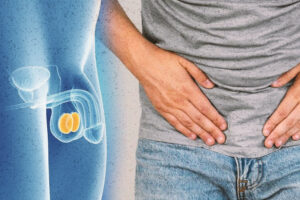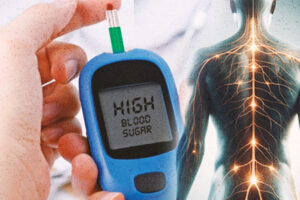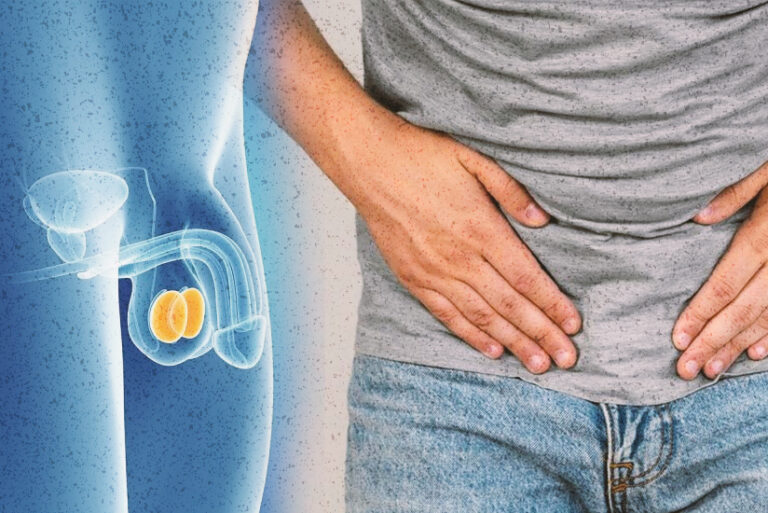By Henrylito D. Tacio
Geoffrey “Jepoy” C. Igagamao was only 18 when the doctor diagnosed him with high blood pressure. At the age of 25, he was already working in the corporate world. His doctor told him to take hypertension medicine, because aside from having high blood pressure he also had high cholesterol.
“It runs in our family,” he admitted. “I didn’t follow what my doctor said since I was still too young to take such kind of medicine.”
Years passed and he got married. He started his own business and has also started building his family, having kids already. He took hypertension medicines all right but “I did not take them religiously,” he said.
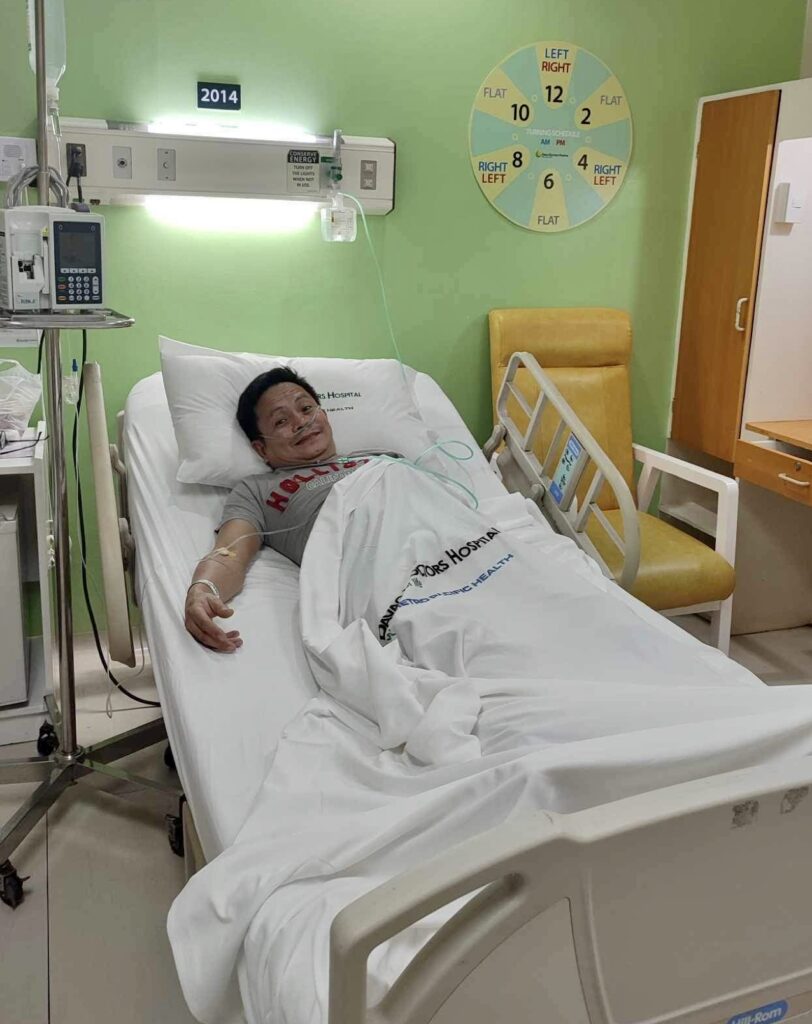
Everything was apparently normal regarding his health. But it was a different story when he reached the age of 44. “It was June 17, 2017, when I had my first massive chest pain,” he recalled. “I didn’t even discover that it was a heart attack because the ER doctor did not tell me.”
The doctor told him that he may be “was just tired” as the results of the lab tests didn’t show any reference to a heart attack.
He returned home and a week after the incident happened, Jepoy went to Manila to attend the Couples for Christ International Conference. He again experienced chest pain and was rushed to a nearby hospital.
The doctor told him he had had a heart attack. “I had one blockage in my heart,” he said. “An angioplasty surgery was performed and one stent was placed in my artery.”
Two days before Valentine’s Day this year, he started having chest pain again. “I was admitted to two hospitals for a total of thirteen days,” he said. “The doctors discovered that I had five coronary artery blockages.”
Jepoy had another angioplasty surgery on February 29. “I have 6 metal stents in my coronary arteries now,” he said.
He survived and has learned his lessons well now. “My mistake was that I haven’t completely changed my diet since 2017,” he admitted. “And I also missed medicine for almost six years. I haven’t had a regular check-up, too, since 2017.”
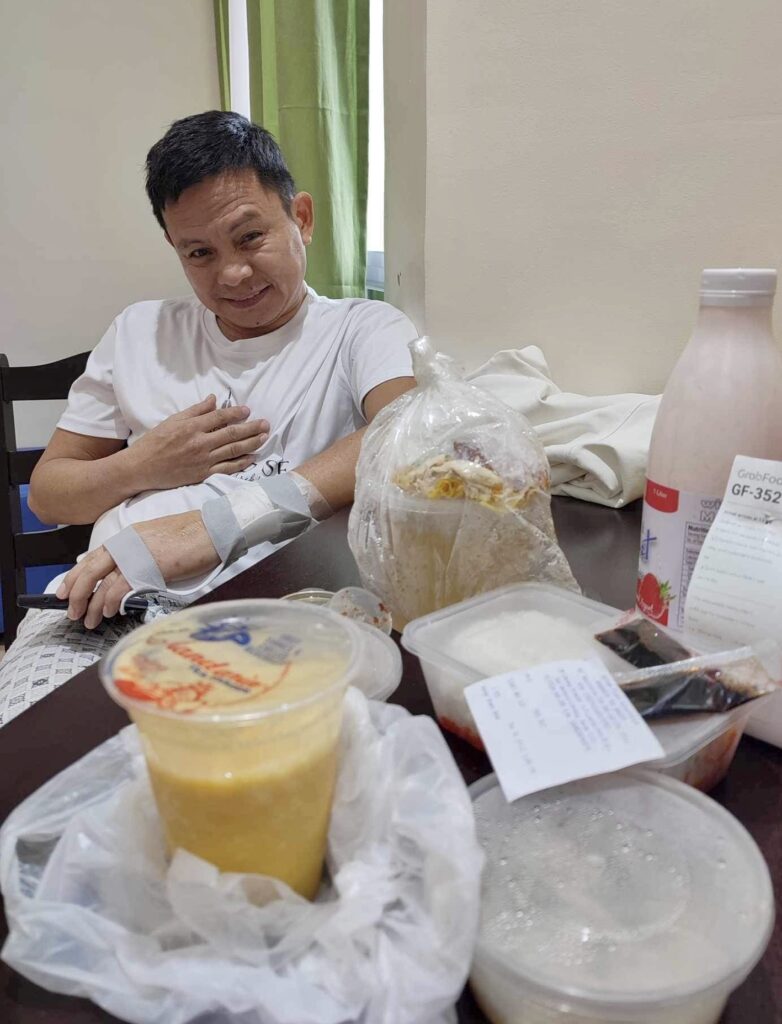
Jepoy considers this as his third life. “Now, I am very strict with my diet: no more meats, processed foods, and fast foods. Low carb and low salt and sugar. I follow all the meds prescriptions and I will have a regular check up every six months.”
Strike anytime, anywhere
A heart attack is one of the most treacherous diseases as it strikes anytime – in the office, while attending a party, or even resting at home. “A heart attack usually occurs when a blockage in a coronary artery, which supplies the heart with oxygen and nutrients, severely restricts or cuts off the blood supply to a region of the heart,” explains The Merck Manual of Medical Information. “If the supply is cut off or greatly reduced for more than a few minutes, heart tissue dies.”
Myocardial infarction, as heart attack is known in medical parlance, may cause sudden death, usually due to abnormal heart rhythm, which prevents effective pumping. Severe persistent pain in the center of the chest is common, and it may lead to shock or lung congestion.
Heart attack causes
“Coronary artery disease (CAD) is the main cause of heart attack,” said the US Centers for Disease Control and Prevention (CDC). “A less common cause is a severe spasm, or sudden contraction, of a coronary artery that can stop blood flow to the heart muscle.”
A blood clot is the most common cause of a blocked coronary artery. “Usually, the artery is already partially narrowed by atheromas,” the Merck manual says. Atheroma is a degenerative condition of the arteries. The inner and middle coats of the arterial walls become scarred, and fatty deposits (cholesterol) are built up at these sites. Blood circulation is impaired, and it may lead to such problems as stroke and heart attack.
“An atheroma may rupture or tear and create more blockage, which promotes clot formation. The ruptured atheroma not only restricts the flow of blood through an artery, but also makes platelets stickier, further encouraging clots to form,” the Merck manual points out.
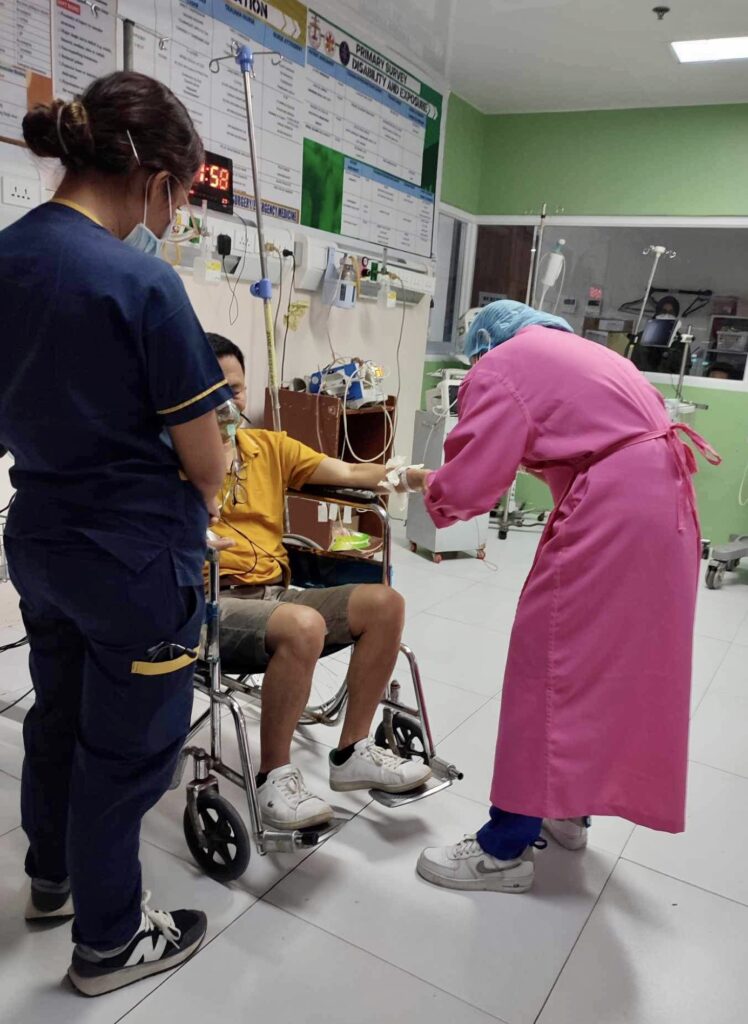
An uncommon cause of a heart attack is a clot from part of the heart itself. In some instances, a clot forms in the heart, breaks away, and lodges in a coronary artery. Another uncommon cause is a spasm of a coronary artery that stops blood flow. Spasm may be caused by drugs such as cocaine or by smoking, but sometimes the cause is unknown.
Symptoms
Are there telltale signs that a person will know that he’s experiencing a heart attack? Yes, according to the Merck manual. It says that about two out of three people who have heart attacks experience intermittent chest pain, shortness of breath, or fatigue a few days beforehand. The episodes of pain may become more frequent even after less and less physical exertion. “Such unstable angina may culminate in a heart attack,” warns the Merck manual.
Generally, the most recognizable symptom is pain in the middle of the chest that may spread to the back, jaw, or left arm. It may also spread to the right arm, although this is less often. The pain may occur in more or more of aforementioned places, and not in the chest at all.
“The pain of a heart attack is similar to the pain of angina but is generally more severe, lasts longer, and isn’t relieved by rest or nitroglycerin,” the manual states. Angina is a suffocating, choking pain, usually used in reference to angina pectoris, which is felt in the chest. The pain is felt or brought on by exercise and relieved by rest, and occurs when the blood supply to the heart muscle is inadequate.
Other symptoms of a heart attack include a feeling of faintness and a heavy pounding of the heart. Irregular heartbeats may seriously interfere with the heart’s pumping ability or may cause the heart to stop pumping effectively (cardiac arrest), leading to a loss of consciousness or even death.
During a heart attack, a person may become restless, sweaty, and anxious and may experience a sense of impending doom. The lips, hands, or feet may turn slightly blue. An elderly person may become disoriented.
The importance of the ECG
Despite all the possible symptoms, as many as one out of five people suffering a heart attack have only mild symptoms or none at all. Such a silent heart attack may be recognized only on a routine electrocardiogram (ECG) sometime afterward.
The ECG is a record of the changes in the heart’s electrical potential made on an instrument called an electrocardiograph. A person is connected to the equipment by leads on the chest and legs or arms. A normal trace has one wave for the activity of the atria and others relating to the ventricular beat. Abnormal heart activity is often indicated in the trace and it therefore forms a useful diagnostic aid.
First aid and steps
The Mayo Clinic says that you get help right away if you think you’re having a heart attack. Take these steps:
Call for emergency medical help. If you think you’re having a heart attack, immediately call 911 or your local emergency number. If you don’t have access to emergency medical services, have someone drive you to the nearest hospital. Drive yourself only if there are no other options.
Take nitroglycerin, if prescribed to you by a health care provider. Take it as instructed while awaiting emergency help.
Take aspirin, if recommended. Taking aspirin during a heart attack may reduce heart damage by preventing blood clotting.
“Aspirin can interact with other drugs,” the Mayo Clinic reminds. “Don’t take an aspirin unless your care provider or emergency medical personnel say to do so. Don’t delay calling 911 to take an aspirin. Call for emergency help first.”
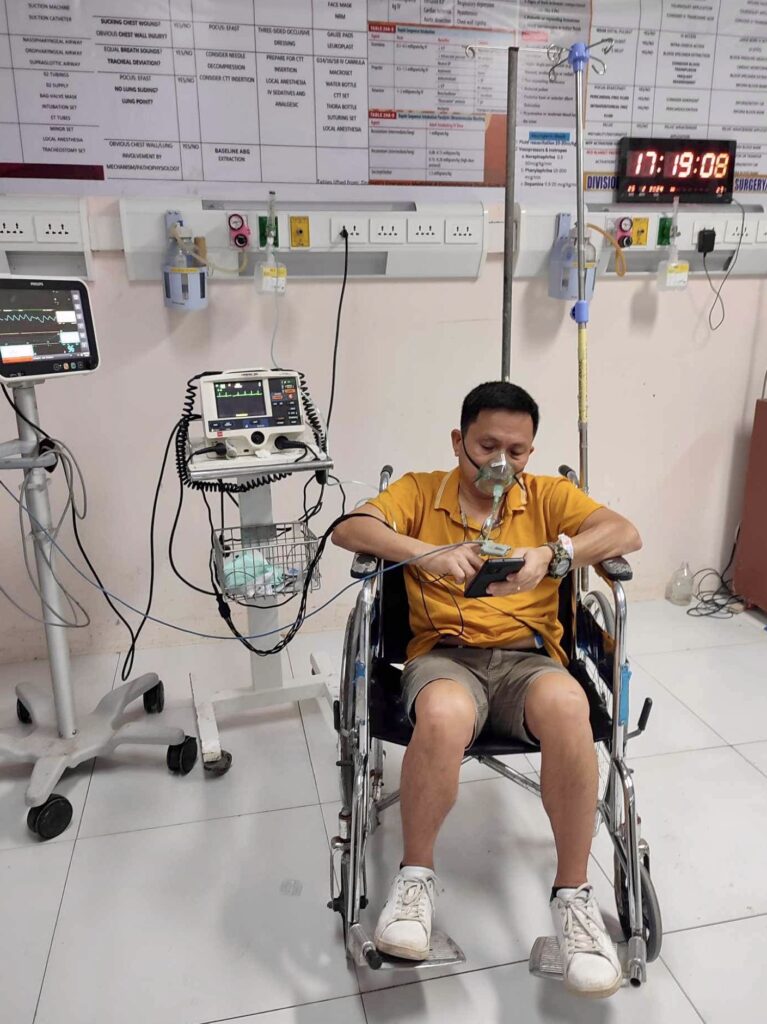
Risk factors
A heart attack strikes anyone. But a person with the following risk factors are most likely to have a heart attack: having a family history of heart disease or hypertension; being male or a post-menopausal woman; being 65 years of age or older; having diabetes; being a cigarette smoker; being overweight and having high cholesterol; leading a sedentary lifestyle; and having high levels of stress.
“A heart attack is a medical emergency,” says the Merck manual. “Half of the deaths from heart attack occur in the first three to four hours after symptoms begin. The sooner treatment begins, the better the chances of survival. Anyone having symptoms that might indicate a heart attack should get prompt medical attention.”
Most people who survive for a few days after a heart attack can expect a full recovery, but about 10 percent die within a year, according to the Merck manual. Most deaths occur in the first three to four months.
Meanwhile, Jepoy offers these “three takeaways” based on his experience:
One, do not take your health for granted. Have regular check-ups. Follow strictly your doctor’s advice.
Two, eat the right food. Change your diet if you have medical conditions. Do away with vices.
Three, always have a deep faith in our God. Give your all to Him because, despite our mistakes, He will help us survive. – ###
(Photos courtesy of Geoffrey Igagamao)


